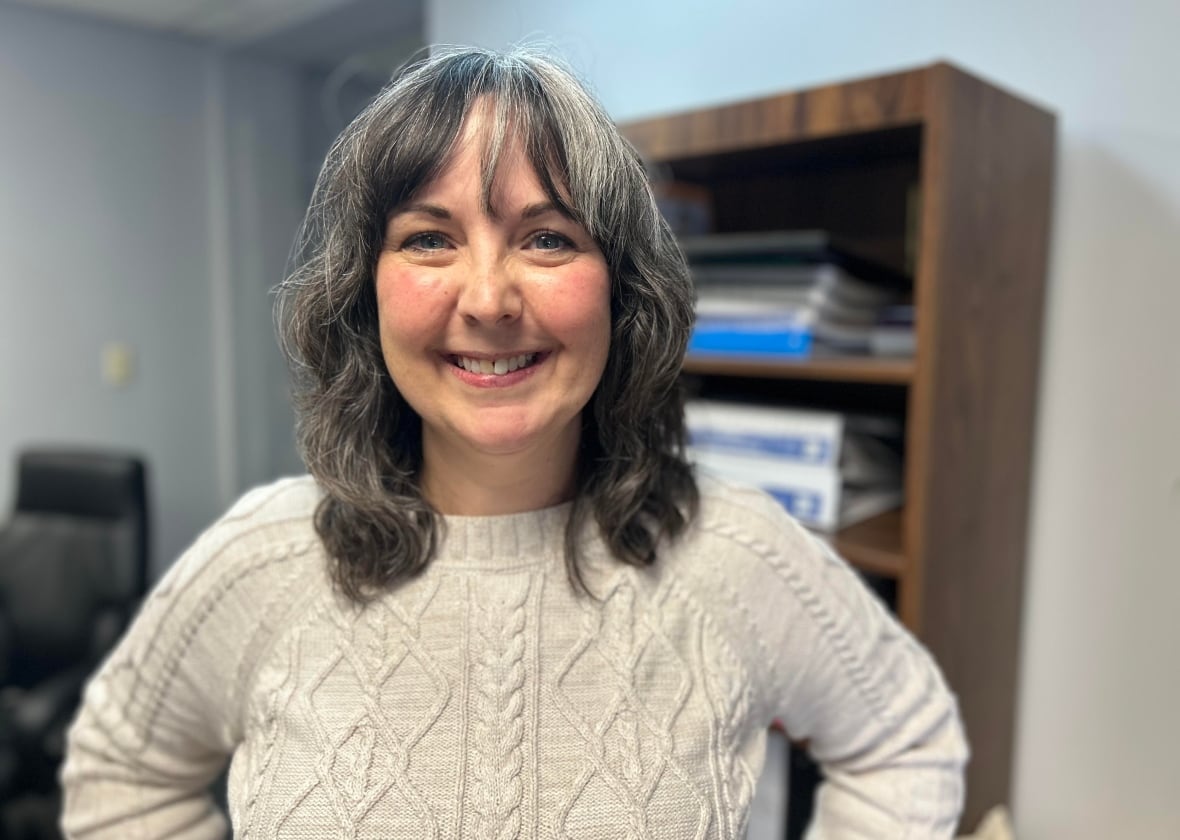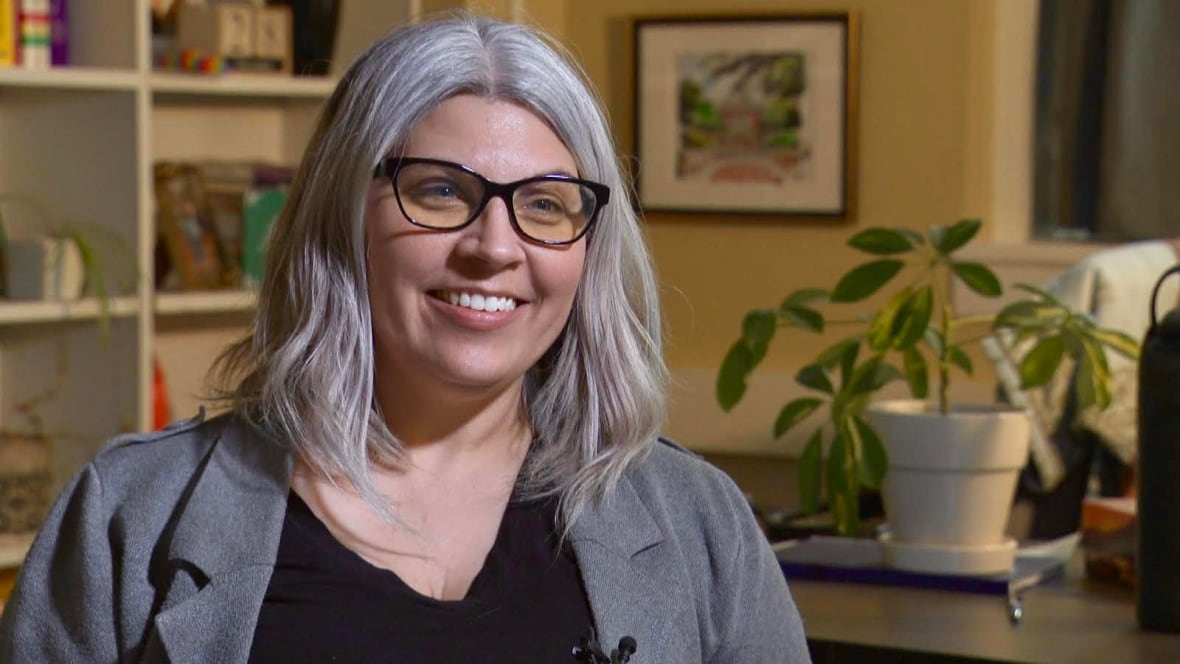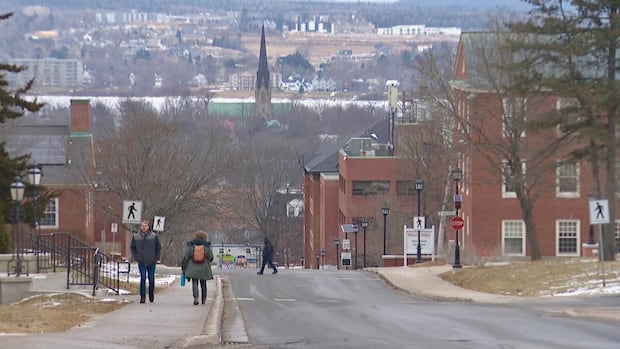A growing number of university students across the country are reporting disabilities — and receiving academic accommodations — with Maritime institutions leading the way.
Academic accommodations can include extra time for exams and assignments, note-taking assistance, a quiet space to write tests and reduced course loads.
According to the Canadian University Survey Consortium, 29 per cent of Maritime university students reported a disability in 2019. That number jumped to 37 per cent in 2022.
That’s higher than universities outside the Maritime provinces, where 24 per cent of students reported having a disability in 2019, climbing to 30 per cent in 2022.
Mental health issues, particularly anxiety and depression, make up more than half of all reported disabilities.
These figures come as no surprise to Amanda Manning, manager of accessibility services at St. Thomas University in Fredericton. She said the number of students reporting a disability tripled between 2013 and 2023 at STU.
She suspects the rise could be attributed to a number of factors, including reduced stigma, especially related to learning disabilities and mental health.
The pandemic also “played a significant role in disrupting education,” she said, and some support is needed for that academic recovery to take place.
With the proportion of students with disabilities growing, universities are providing accommodations that include more time for exams and assignments, help with note taking, and a quiet space to write tests.
At the University of New Brunswick, there has been a 53 per cent increase in students receiving accommodations since 2018, UNB spokesperson Kathleen McLaughlin said in a statement.
Academic accommodations are primarily for mental health, attention deficit hyperactivity disorder, and learning disabilities.
“We have created new strategies to increase our ability to support additional students,” McLaughlin said.
That includes implementing new software to help streamline the approval and delivery of accommodations, and adding team members on both campuses to support students who need academic accommodations.
Accommodations allow for equal opportunity
Ainsley Congdon, executive director of the Learning Disabilities Association of New Brunswick, often helps students navigate the system and get their paperwork in order. That can include getting a psycho-educational assessment, which is sometimes required for accommodation, and must be done within the past five years.

She said individuals with a learning disability have full capacity to learn, “they just need accommodations,” which is more important now than ever.
“Everyone needs post-secondary education to further their career and to get a job that they’re passionate about.”
Draven Harrison said he went straight to work in the construction industry after high school because he liked working with his hands and didn’t always receive the tools he needed to push forward academically.
Harrison said as a hands-on learner, it was easier for him to go into the workforce than to “sit still and listen to somebody talk.”
But now, in his early 20s, he’s in his first year at St. Thomas University with the goal of becoming a high school history and philosophy teacher.

His accommodation requests are informal, but he said they make a big difference to his learning.
For instance, he often wears glasses with a blue-light filter because bright light bothers him. If he still finds the light too much, he will ask his professors to dim them so he “can focus easier.”
“Those momentary assistances — they go far,” Harrison said.
A step toward universal design for learning
Cindy Crossman, acting director of accessibility and student wellness at Mount Allison University in Sackville, said about 20 percent of their student population reports having a disability, a steady increase over the past five years, but still well below the national average.
Along with academic accommodations, Crossman said faculty members are also starting to adopt more inclusive strategies for all students, which would “hopefully remove barriers to learning by providing multiple means of engagement and expression.”
The university will host a session on what’s known as the universal design for learning, an approach that accommodates the needs and abilities of all learners.
For example, a professor might provide course material in multiple ways and offer students different assignment options, so they can choose how they want to express what they know.
More flexible learning spaces are also part of the universal design for learning, and professors would be encouraged to make materials more accessible for students as well. This way, they can focus more on what is being taught and less on taking notes.
Crossman said the shift can increase a professor’s workload, “but it also benefits everyone to have a more diverse classroom that fosters empathy and understanding.”

Manning said a similar movement is underway at St. Thomas University.
“I do think that there’s a realization that the landscape is shifting, especially post-pandemic,” Manning said. “And so … we’re currently trying to recalibrate … to be able to support this.”


